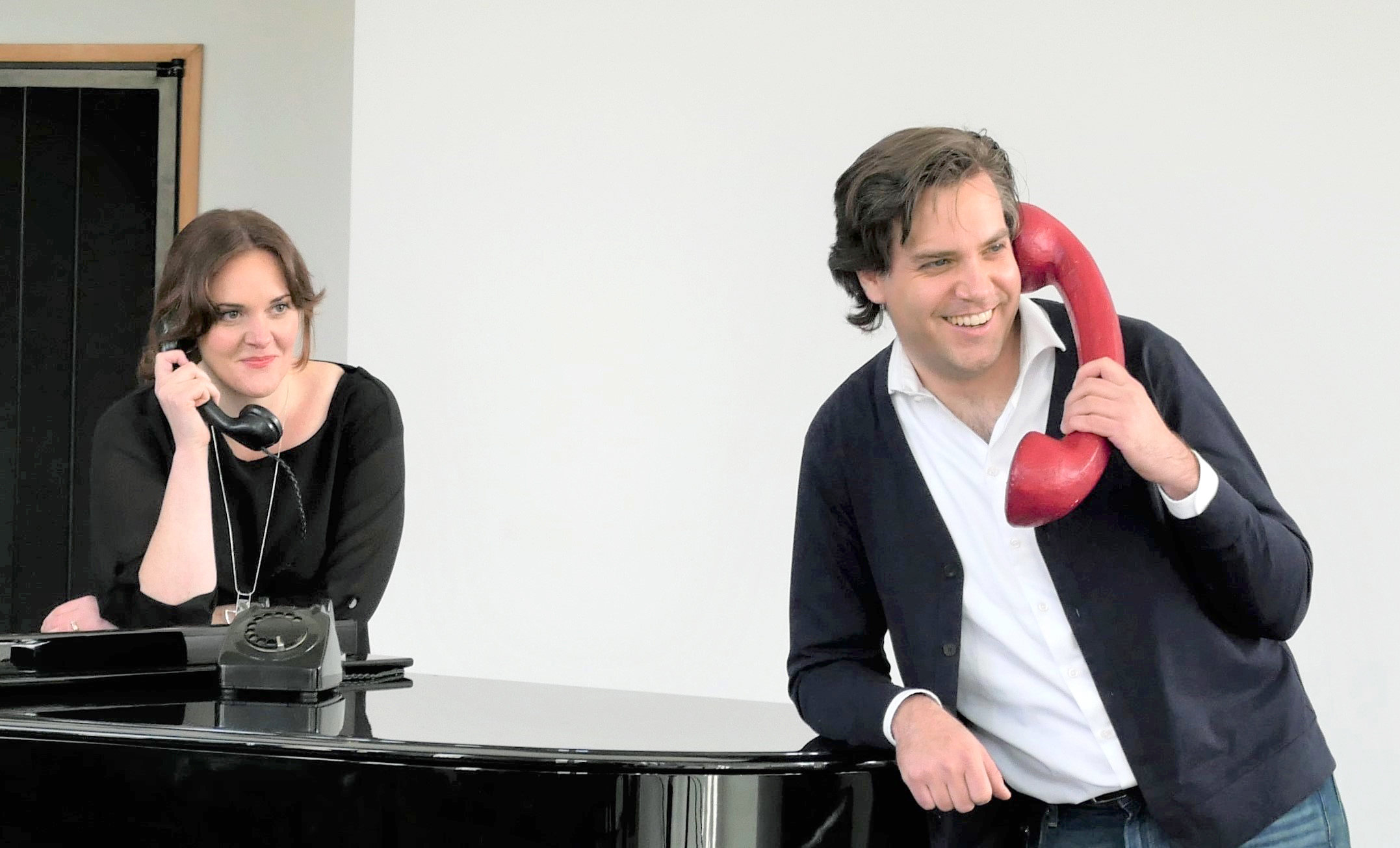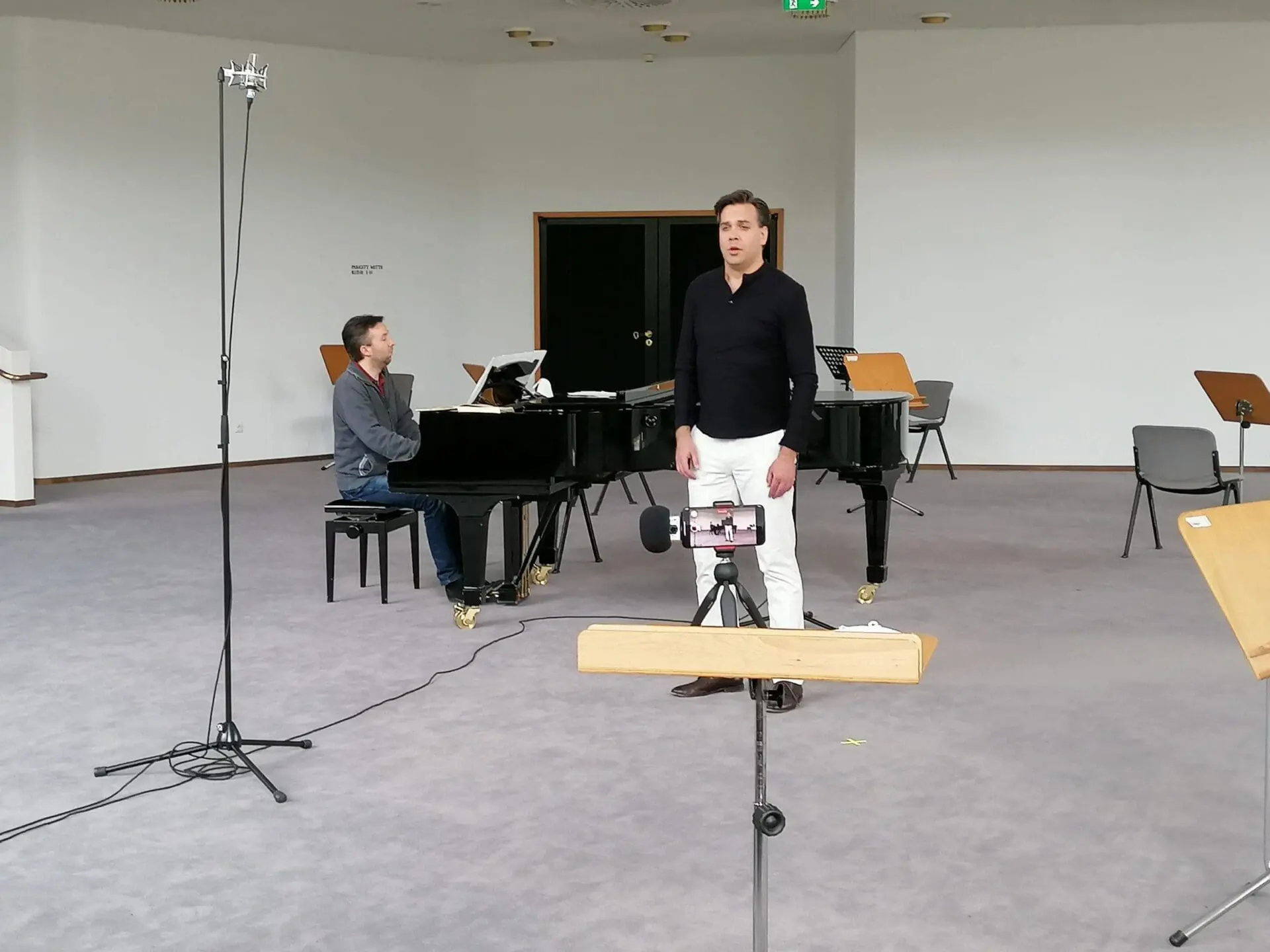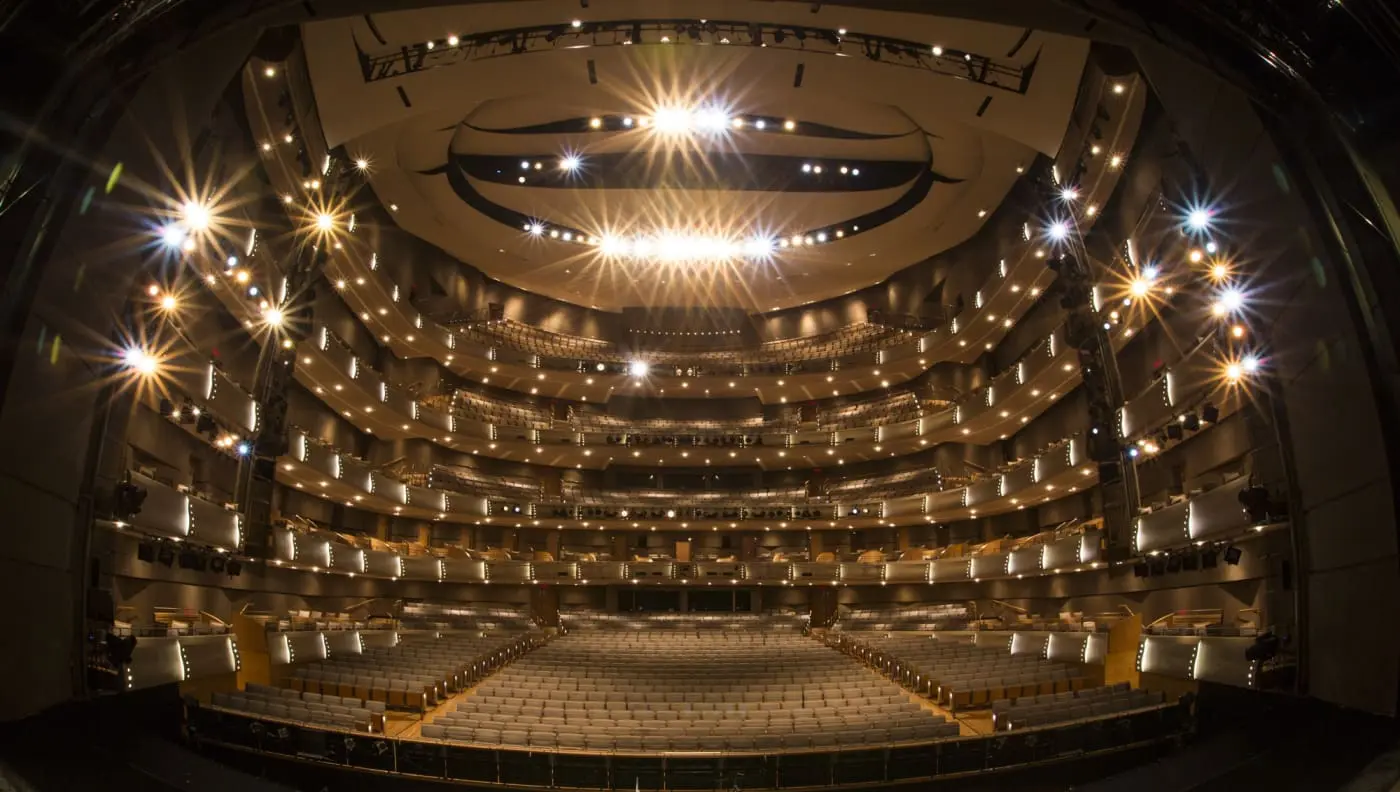As opera houses continue to navigate the pandemic, Aalto Theater Essen is using phones to give its German audience a more personal opera experience.
It’s no secret that the pandemic has been challenging for the opera world. Social distancing has made it difficult to put on performances while the lack of “human connection” has heightened the disconnect that audiences and artists have been feeling. In response to this, many opera houses have turned to streaming performances, or putting on “digital operas,” for online audiences. The problem however, as Aalto Theater soon noticed, is that some of its most devoted fans don’t have access to the internet.
“The idea was, you can’t have an audience in the opera house, but can you take [the opera] to the audience? And some opera houses have done online streaming but not everybody has access to that,” said Canadian baritone Karel Martin Ludvik, who has been a company artist at Aalto Theater since 2016. “There are older people who don’t have access to this technology. So, the thinking was, how can we still bring them opera? And, well, everyone’s got a phone. The sound quality is what you expect its going to be, we’re not a stream. And we’re not a true live performance.
“However, when you think about the fact that people are making music, just for you, there’s something special about it. And, especially right now in the situation we’re in, it has made a difference to people.”
The performances, sung by Ludvik and fellow Canadian singer, soprano Jessica Muirhead, have been a hit with the public. When Aalto Theater, which is in Essen, Germany, first offered these mini operas in April, over 120 patrons requested their own, private, phone concert. For an hour, with each concert lasting about 10 minutes, the singers delighted audiences with an array of music by Puccini, Wagner, and Schubert, to name a few. Though many of the pieces were chosen by the singers the concerts, depending on the information given beforehand, selections could be tailored towards the person listening. And, in the pauses between arias and songs, patrons got an opportunity to chat with the artists—something that can’t normally be done within regular performance parameters.
But not everyone was on board at first. When Aalto Theater’s director and dramaturgy team first came up with the idea Muirhead, who has been a soprano at Aalto Theatre since 2015, said she was “skeptical” about the reach the mini operas would have. However, she quickly changed her mind after seeing how the phones provided the personal connections that the people were looking for.
“We spoke with this 88-year-old woman who said that she can’t really leave her house anymore and she used to be a regular at the opera but its just not possible for her anymore,” says Muirhead. “And the internet is not her thing—we’re trying to reach a generation of people who can’t access the internet. So, for us to bring opera to her through her phone, she said, ‘you can’t understand how precious this is what you’ve given me. You’ve really touched me.’
“And, holy hell, the connection that I felt once I’d finished [singing for her]. After that, I was on board with the project. And when I was asked to do it again, I immediately said yes.”
It is this human connection that has been key to the project’s success, though not just with opera patrons. Artists have also been craving a more personal connection with their craft—through their audience, through the people they work with—and have found the lack of interaction quite jarring.
“I think what we realized is that an applause is a sign of connection. It’s not just an affirmation, it’s a connection,” says Muirhead.“I think opera houses are coming up with interesting ideas that aren’t just about [digital] streams to connect with people and make the world a better place. But I’d be surprised if another opera house did [phone operas]. I’m glad we did it. It was worth it. But also performances are starting up again, which means soon there won’t be any time to do phone operas again.”
However, Ludvik says that opera houses should consider taking the time to do this project.
“I think we need to give something to the people who have given to us for a very long time. I think what we’re doing with these telephone calls, its not as if we recorded something and then played it over the phone. We speak to [the audience] first. And it’s a very special connection, these concerts. Its just so special.”













